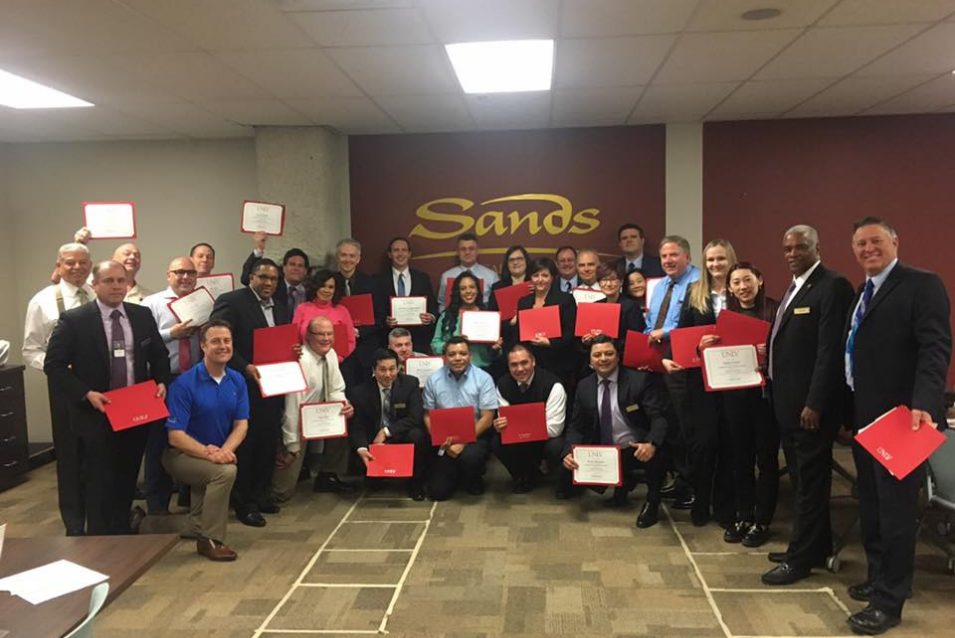News | March 14, 2018
Las Vegas Sands Kicks Off “Problem Gambling Awareness Month” with Responsible Gaming Ambassador Training and Comprehensive Team Member Educational Initiatives
In recognition of “Problem Gambling Awareness Month”, Las Vegas Sands held its sixth annual Responsible Gaming Ambassador trainings from March 6-8, training 90 Team Members on how to identify problem behavior and get help to compulsive gamblers. Led by world-renowned University of Nevada, Las Vegas (UNLV) professor Dr. Bo Bernhard, the ambassador training program adds more resources to the pool of responsible gaming ambassadors who are on the company’s gaming floors around the globe, 24 hours per day, seven days a week. Responsible Gaming Ambassador trainings will be held in Singapore and Macao later in 2018.
“The job of an ambassador is not to fix the problem, but to connect problem gamblers to resources and the help they need,” Dr. Bernhard said. “There is only one percent of the population that is a problem gambler, but they need help. It’s not an automatic addiction, it’s something that builds over time. They are seeking action and need an escape. It’s similar to alcohol and drug addiction where it activates the brain the same way.”
Speakers included Dr. Rob Hunter from The Problem Gambling Center (PGC) in Las Vegas. The center provides an experienced staff who helped design the nationally certified program for problem gambling treatment professionals, and lecture and train around the world. The center also provides an accessible program with minimal fees per session. A Clinic Manager at PGC, who was once a problem gambler, spoke to the group about her own experiences.
“I come from a family of addiction so when I started my own family, I wanted everything to be perfect and I wanted my kids to have everything I didn’t have,” she said speaking to the group of ambassadors. “My life changed when my husband and I moved to Las Vegas. I didn’t love living here and then we just started hitting various obstacles. We both had jobs, but we couldn’t make ends meet.”
She said it all started at a local casino where she won $250. She thought she was being responsible by only gambling half of her winnings and saving the other half. That night she went home with $60,000 and their lives changed. In the beginning, she said she was being responsible with the money, supplementing her income with the winnings. She soon realized she needed to go more often and didn’t realize it was taking hold of her life.
“I started stealing from my employer to gamble, thinking I was just borrowing it and would win it all back,” she said. “I would play three machines at a time and head to the casino after my kids fell asleep. I was dying inside. Then I was caught by my employer’s daughter. Turns out she was stealing from him as well, so I blackmailed her so no one would know about either of us. One month later, I started stealing again.”
She was caught again and that’s when her family reached out to PGC and she started treatment the following week. She originally thought she had only taken $30,000, but it turned out she took $365,000. She left treatment after one year and then she was arrested for stealing the money.
“I took responsibility for what I did, I was in jail for three months and I ended up getting five years of probation instead of 16 years in prison,” she said. “I started working at the center and when I received my letter stating that my probation was over, I had an urge to go gamble. I didn’t go, but I thought I was weak for even considering it. It’s so important to go to meetings and understand your addiction. I had issues I didn’t know I had. Gambling dictated everything I did. Treatment works as long as you’re willing to receive the help.”
